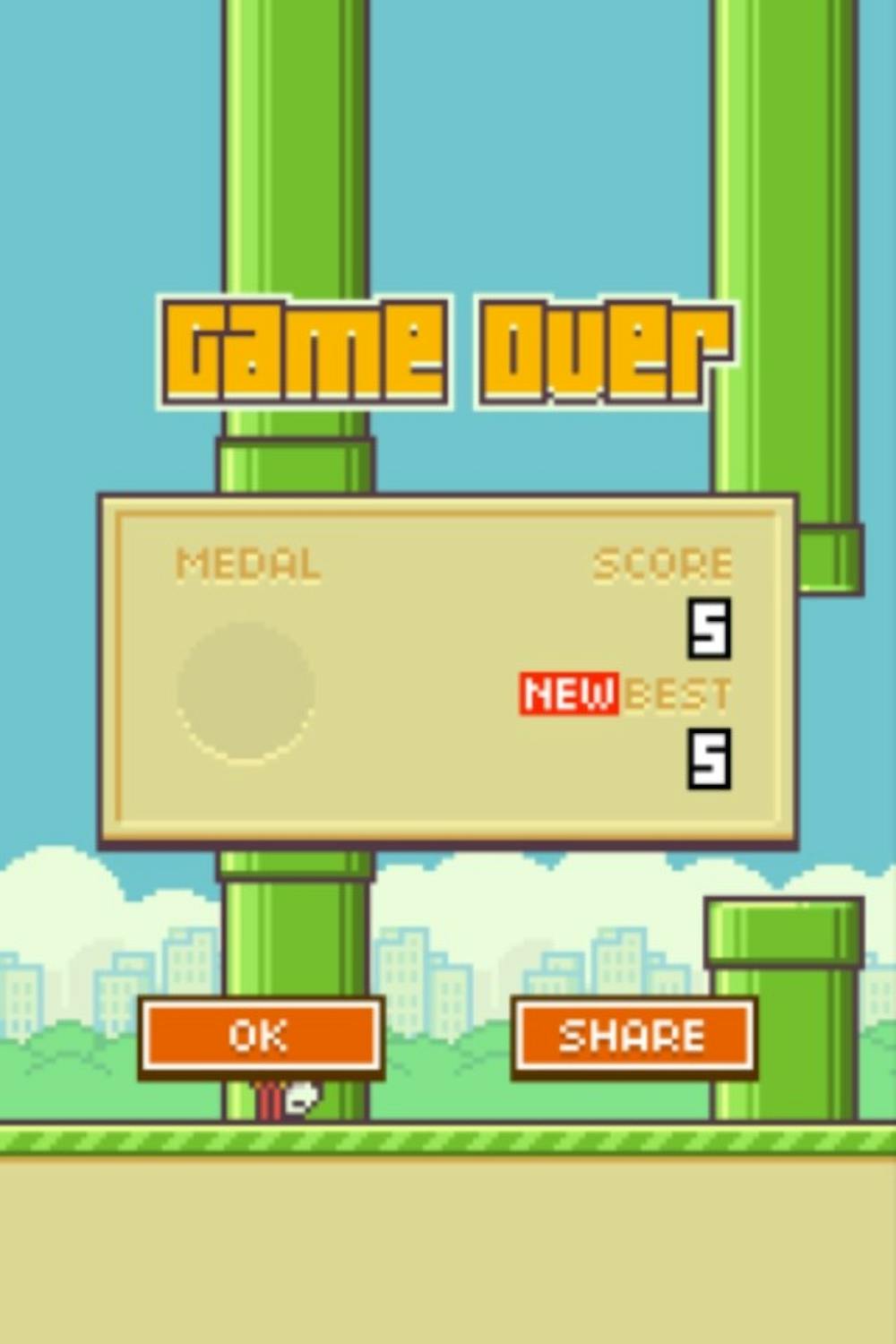Borrowing a graphical style from the 80s and game mechanics from the 90s, Dong Nguyen had a seemingly overnight hit on his hands, but he let it go; leaving the over 50 million people who had already downloaded it to wonder, “Why?”
Flappy Bird was created by one man and released for free on both iOS and Android, the two major smartphone operating systems. It rose to fame in a matter of months, receiving millions of downloads first on iPhones, then much later on Android-powered phones.
The game did not get popular until December 2013, despite its initial release in May, but the game seemingly took off like a rocket after its initial surge in popularity.
No one questioned the games addictiveness, but many did question how it got so popular. Mashable analyzed the supposed fake reviews and compared that to the buzz of the game on Twitter, finding a direct correlation between the positive reviews and the amount of times people were tweeting about the game.
So Flappy Bird was not an elaborate ruse. Then why did it disappear?
Reportedly receiving $50,000 per day in ad revenue, the creator, 29 year-old Dong Nguyen, pulled the plug on Flappy Bird’s life on Feb. 9. This was only three days after the game’s latest update, which included some graphical fixes and even made the game slightly easier.
The game had taken on a life of its own. Nguyen, the Vietnamese developer, was not the one pumping Flappy Bird’s blood. Instead, its avid fans were stringing the game along; accusing him of not only the aforementioned review boosting, but also hoarding money by cloning already present gaming concepts.
Take the pipes. Don’t they look like the same ones from Super Mario Bros.? Doesn’t the gameplay feel like the old helicopter flash games from AddictingGames.com? The borrowing of concepts in new games is, in fact, nothing new though. Almost all first-person shooters follow the same formula, as do platformers.
Nguyen, isn’t a thief, he just couldn’t take the heat.
“I am sorry ‘Flappy Bird’ users, 22 hours from now, I will take ‘Flappy Bird’ down. I cannot take this anymore,” he tweeted on Feb. 8.
His further tweets revealed that the takedown was not related to any legal issues. Nguyen also revealed that he was not interested in selling the game, but that he would continue to create new games.
Despite the game being unable to receive any new downloads through the official markets, it is still a cash cow for its creator, who is still receiving credit for every single ad impression created by the game.
Financially, Nguyen will not be missing out on the gains that his three-day creation is creating for him. He will, though, be missing out on the spotlight, which is now being occupied by actual copies. Apps and games that are trying to ride the wave of Flappy Bird’s success.
Tens, if not hundreds of fake apps and blatant rip-offs have been appearing on Apple’s App Store and Google’s Play Store since the game went viral, and even more are appearing now that it is gone. The automatic filters that each store has put in place have not been able to cope. Simply blocking the word “flappy” has not been good enough, as one might see by scrolling through the recent additions in each market.
Still, with all the stories and accusation of copying and stealing surround Nguyen, Flappy Bird is the story of a simple stroke of luck, not of thievery or deception.




The Slate welcomes thoughtful discussion on all of our stories, but please keep comments civil and on-topic. Read our full guidelines here.